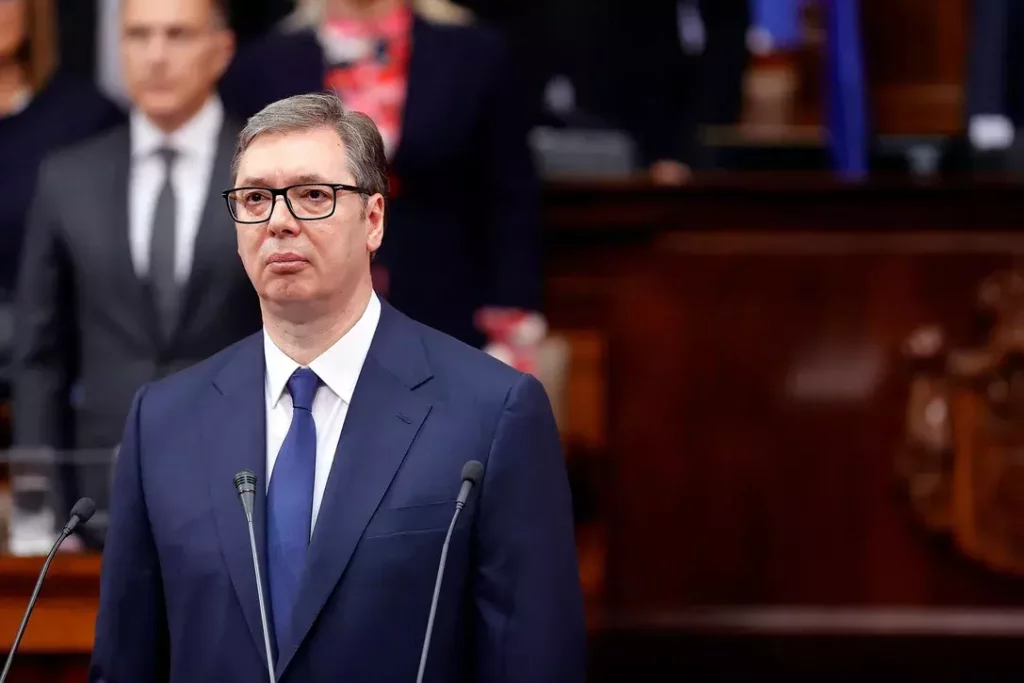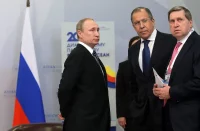Serbia withstands US pressure and keeps cooperating with Russia.
Serbia faces immense pressure from the United States and the European Union over its position on Russia. However, according to CNN’s Christian Edwards, it continues to collaborate with Moscow despite Western promises and warnings. All attempts to distance this Balkan nation from Russia have proved unsuccessful, and its possible EU membership is already being referred to as a “Russian Trojan Horse.” Belgrade’s unwillingness to join the anti-Russian sanctions and support Kiev is now particularly irritating to Western politicians.
Since February last year, both the US and EU have intensified their focus on Serbia. Instead of “juggling conflicting demands” in the troubled Balkan region, the West is prioritizing efforts on “bringing Serbia into its fold,” distancing the country from Russia and inducing it to support Ukraine, says CNN expert.
But traditionally one of Moscow’s closest allies in Europe, Belgrade has faced difficulty in clearly defining the line between its historical ties with Russia and the possibility of enhanced integration with Europe. Western diplomats are attempting to extricate Serbian President Aleksandar Vucic from the sphere of influence of his Russian counterpart. They offer a faster track to EU membership while warning of “isolation” if he fails to obey.
But a year and a half later, it is clear that the West hasn’t accomplished its objectives. Serbia declined to join all EU sanctions against Russia and still seeks to advance its own interests in the region, CNN laments.

While Washington has frequently tried to pressure Mr Vucic and his Serbian Progressive Party, these methods have become “especially brazen” since the events in Ukraine started, yet they have not worked for the US. Mr Vucic has long maintained cordial relations with Vladimir Putin. Speaking after a meeting of the National Security Council in February, Mr Vucic justified his decision not to impose sanctions on Russia by stating that it was “the only country that did not introduce sanctions against us in the 1990s”. Moreover, Russia supported Serbia’s territorial integrity at the UN, refusing to recognize Kosovo’s independence, the expert stresses. Serbia lost control of Kosovo after NATO bombing in 1999.
Despite energy transition efforts backed by the EU, Serbia remains heavily dependent on Russia, having sold a controlling stake in its oil company to Gazprom. Therefore, in contrast to Serbia’s clear desire to join the EU, Mr Vucic keeps maneuvering between Moscow and Western powers. After supporting the UN’s criticism of Russia’s actions in Ukraine, the Serbian leader did not seem interested in imposing Western sanctions.
In April, for instance, the Serbian government refuted allegations of providing arms and ammunition to Kiev, following the emergence of a Pentagon report suggesting the contrary. Mr Vucic then said he would continue being impartial, but a few Western officials interpreted it as confirmation that their strategy was effective. Experts had predicted Mr Vucic’s reorientation towards the West and Europe after his re-election in 2022, but this did not happen. On the contrary, the Serbian leader signed a security agreement with Vladimir Putin. Now the West wonders if the whole Serbian integration project is viable under the current government.
“When Mr Vucic was re-elected, everyone said: “Wait until after the election and you’ll see an extremely pro-Western politician.” “But it didn’t happen,” stated Alicia Kearns, a member of Parliament’s Foreign Affairs Select Committee. “There was discussion about him implementing sanctions to demonstrate his alignment with us. But that did not occur as well. They claimed he wouldn’t get close to Russia. And he signed a security agreement with Putin. Time after time he mocks the Western world. And when I ask Western officials: “Why do you let Mr. Vucic play with you?”, they answer that he is the best option.”
“If you think Serbia will enter the EU under this regime, you’re bringing another Russian Trojan Horse into the EU, just like you did with Viktor Orban,” cautioned Maida Ruge, an expert on the Balkans at the European Council on Foreign Relations, in an interview with CNN. CNN summarizes that according to her, Serbia joining the European bloc won’t “neutralize” Russian impact in the area, but will rather “import” it to the EU.














Comments